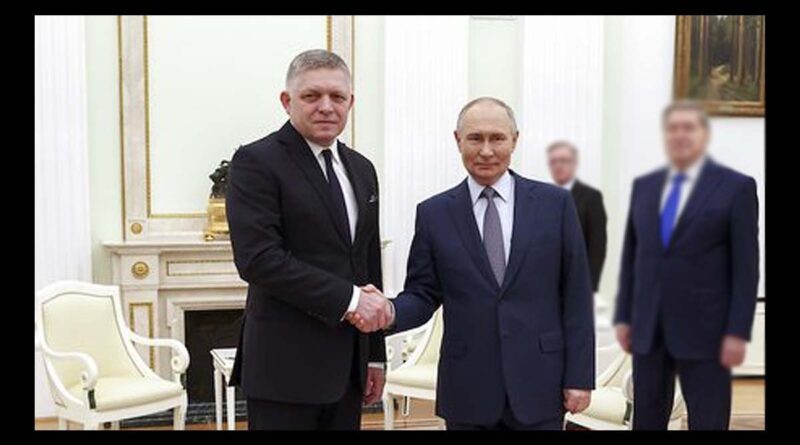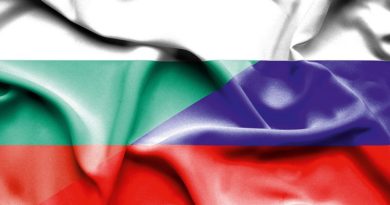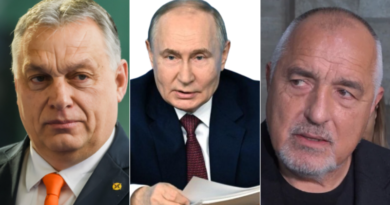The Challenge of Russian Gas Transit
Background: Viktor Orbán and the Debate on Russian Gas Transit Through Bulgaria
During his recent visit to Sofia, Hungarian Prime Minister Viktor Orbán reignited the debate over Russian gas transit through Ukraine. Bulgaria has pledged to transport 7 billion cubic meters of natural gas to Hungary via the TurkStream pipeline by 2025—an increase of 1.3 billion cubic meters compared to 2024. However, Orbán argues that this increase will not compensate for the loss of 3–4 billion cubic meters currently transited through Ukraine. While Orbán claims that Bulgaria’s transmission system could theoretically handle these additional volumes, his ambitions entail significant technical and geopolitical risks.
Bulgaria’s Gas Transmission System: Constraints and Challenges
The Bulgarian Gas Transmission Network (GTN) has some spare capacity to accommodate additional gas transit. However, dedicating this capacity almost exclusively to Russian gas destined for Hungary would expose Bulgaria to significant political, economic, and financial risks.
First, such a move would contradict the EU’s goal of diversifying energy supplies away from Russia—not only to mitigate political risks but also to deprive Russia of funding for its war efforts in Ukraine.
Second, increasing reliance on Russian gas transit would undermine Bulgaria’s ability to prioritize the Vertical Gas Corridor, a critical initiative for reducing Central and Eastern Europe’s dependence on Russian energy.
Third, as demonstrated by recent U.S. sanctions against Gazprombank, overreliance on Russian gas and Gazexport poses considerable and often unavoidable financial risks for Bulgaria’s transmission system operator (TSO), Bulgartransgaz. These risks include high debt levels combined with uncertain revenue streams.
Prioritizing Russian gas exports to Hungary through Bulgaria could also hinder Turkey’s plans to transport Russian-Turkish gas to Central Europe, complicating the regional expansion of Turkey’s energy company, Botas. Furthermore, by facilitating Russian gas transit, Bulgaria risks becoming complicit in extending Russian influence in the region, indirectly bolstering pro-Russian regimes and politicians in countries such as Serbia, Hungary, Slovakia, and Romania.
Ownership Tricks and Regulatory Loopholes
To circumvent regulatory challenges, Orbán has proposed familiar strategies involving changes in gas ownership. Similar to previous tactics used with Russian crude oil via the Druzhba pipeline, this approach would involve rebranding Russian gas as the property of Hungarian or Slovak companies before it transits through Ukraine or Bulgaria. While such rebranding might theoretically bypass regulatory restrictions, it fails to address the underlying problem: revenue would still flow to Russia, perpetuating the very issue the EU and Ukraine aim to resolve—halting energy revenues that finance Kremlin’s war. Orbán’s proposal is a superficial and hypocritical workaround that ultimately supports the aggressor. Bulgaria must acknowledge that increasing Russian gas flows through its territory would effectively make it a sponsor of Putin’s war against Ukraine—a stark reality that cannot be ignored.
Infrastructure Challenges
Beyond political and regulatory issues, Bulgaria’s gas transmission system faces significant infrastructure limitations. Expanding the TurkStream pipeline’s capacity to Hungary by at least 2 billion cubic meters is technically feasible but cannot be achieved immediately. Increasing reverse flows through the Trans-Balkan Pipeline (lines 2 and 3 from Kardam to Negru Vodă) and the interconnector between Ruse and Giurgiu could help accommodate higher volumes, but these options face constraints. A critical bottleneck exists between Rupcha and Vetrino on the Trans-Balkan Pipeline, where current reverse flow capacities have been repurposed to serve TurkStream gas flows. Additionally, Bulgartransgaz’s previous plans to dismantle the Kardam–Negru Vodă sections of the Trans-Balkan Pipeline have led to poor maintenance, complicating efforts to restore the pipeline’s use for non-Russian gas supplies to Ukraine. To address these issues, Bulgartransgaz has belatedly committed to constructing an additional 67 km of pipeline to restore capacity along the Trans-Balkan Pipeline. Even if completed by 2026, this expansion may struggle to meet the growing demand of the Vertical Gas Corridor, especially if rerouted Russian gas from Ukraine continues to dominate these routes. Such a scenario would erode the corridor’s strategic importance as a foundation for NATO and EU energy security through non-Russian supplies.
Orbán and Fico: Allies or Competitors?
Orbán’s gas ambitions extend beyond Hungary’s immediate energy needs. He has actively supported Slovak Prime Minister Robert Fico, who recently sought alternative Russian gas supplies during talks with President Vladimir Putin. Like Orbán, Fico shows little interest in the EU’s energy diversification goals and appears eager to resume “business as usual” with Russia following a resolution to the conflict in Ukraine that favors Moscow. Fico has also expressed interest in rerouting Russian gas transit from Ukraine through Bulgaria and has threatened Ukraine with retaliatory measures over its restrictions on Russian gas transit, potentially disrupting critical imports and military supplies to Kyiv. This sets up a rivalry between Orbán and Fico for Bulgaria’s limited transit capacity, as Slovakia seeks a route for the 3 billion cubic meters it currently imports via Ukraine.
Regional Competition and Questions of Fairness
For transit countries like Bulgaria, permitting significant volumes of cheaper Russian gas—made possible by Moscow’s politically motivated price dumping—creates a complex dilemma. Russian pipeline gas is significantly cheaper than LNG imports from the U.S., Qatar, and Algeria, which are priced according to market rates. Granting Hungary access to larger volumes of politically discounted Russian gas would distort competition and allow Hungary to profit from Kremlin’s divisive policies, while neighboring countries like Bulgaria and Romania bear the higher costs of LNG imports. Why should Turkey and Hungary benefit from reselling Russian pipeline gas while others like Bulgaria face steeper prices for Russian gas and U.S. LNG?
The Energy Puzzle Thickens
Bulgaria’s national gas network, despite its potential for expansion, remains constrained by infrastructure bottlenecks and delays in critical projects like the Chiren gas storage upgrade. Resolving this geopolitical energy dilemma will require more than political maneuvering or superficial workarounds. It demands substantial investments in infrastructure, a genuine commitment to diversifying energy sources, and stronger regional cooperation to enhance energy security. Without these measures, Central and Eastern Europe’s energy future will remain precarious, and continued dependence on Russian energy will undermine the region’s long-term stability and growth prospects.
Ilian Vassilev




